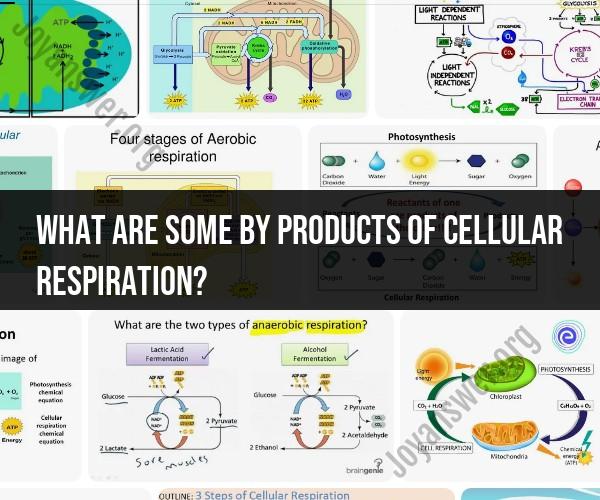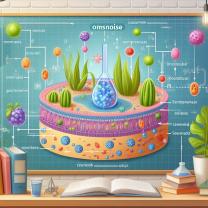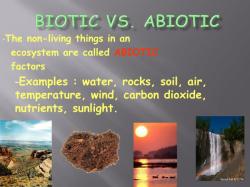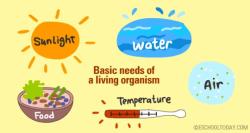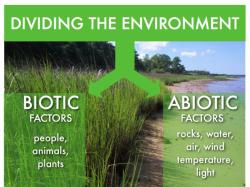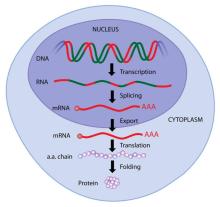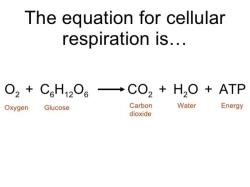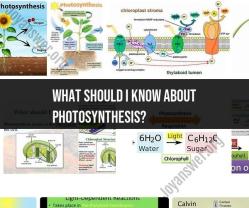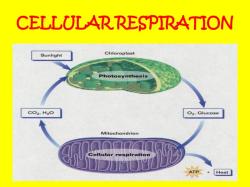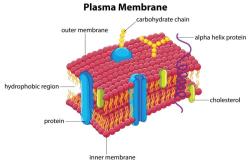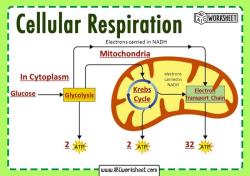What are some by products of cellular respiration?
Cellular respiration is a complex metabolic process in which cells break down organic molecules (typically glucose) to produce energy in the form of adenosine triphosphate (ATP). Along with ATP, cellular respiration can produce several by-products, including:
Carbon Dioxide (CO2): One of the primary by-products of cellular respiration is carbon dioxide. Cells generate CO2 as a waste product when they undergo the process of oxidative phosphorylation and the electron transport chain. This CO2 is eventually transported to the bloodstream and then expelled from the body through respiration.
Water (H2O): Water is another by-product of cellular respiration, specifically in the electron transport chain. Oxygen (O2) is used in this step of respiration, and it combines with electrons and hydrogen ions to produce water. This is a crucial step for the generation of ATP.
Heat: Cellular respiration is an exothermic process, meaning it releases heat as a by-product. This heat is a consequence of the metabolic reactions that occur during the breakdown of glucose and the transfer of energy.
ATP: While ATP is the primary product of cellular respiration (used by cells for energy), it can also be considered a by-product because it is produced during the process and released for various cellular functions.
NADH and FADH2: These molecules are coenzymes that carry high-energy electrons to the electron transport chain during cellular respiration. While they are primarily involved in energy transfer, they are also produced as by-products.
Lactic Acid (in Anaerobic Respiration): In the absence of sufficient oxygen (as in anaerobic respiration), lactic acid is produced as a by-product. It accumulates in muscles and can lead to muscle fatigue and soreness.
Alcohol (in Some Microorganisms): Certain microorganisms, like yeast, produce alcohol (ethanol) as a by-product of fermentation, which is an alternative to cellular respiration in the absence of oxygen.
It's important to note that the specific by-products of cellular respiration may vary depending on the type of respiration (aerobic or anaerobic) and the organism involved. Aerobic respiration, which occurs in the presence of oxygen, is the most common form and leads to the production of carbon dioxide, water, and ATP. Anaerobic respiration and fermentation processes produce different by-products, including lactic acid and alcohol.
What are the by-products of cellular respiration in living organisms?
The by-products of cellular respiration in living organisms are:
- Carbon dioxide: Carbon dioxide is a waste product of cellular respiration. It is produced when glucose is broken down into pyruvate. Carbon dioxide is then transported to the lungs and exhaled.
- Water: Water is another by-product of cellular respiration. It is produced when pyruvate is broken down into acetyl CoA. Water is essential for life, and it is used in many cellular processes.
- ATP: ATP is the energy molecule that is produced by cellular respiration. ATP is used to power all of the cells' activities, including muscle contraction, protein synthesis, and active transport.
How is energy released as a result of cellular respiration harnessed by the cell?
The energy released as a result of cellular respiration is harnessed by the cell in the form of ATP. ATP is a molecule that can store and release energy. When ATP is broken down, it releases energy that can be used to power cellular processes.
Are there any waste products generated during cellular respiration?
Yes, there are waste products generated during cellular respiration. The waste products of cellular respiration are carbon dioxide and water. Carbon dioxide is a waste product of cellular respiration. It is produced when glucose is broken down into pyruvate. Carbon dioxide is then transported to the lungs and exhaled. Water is another by-product of cellular respiration. It is produced when pyruvate is broken down into acetyl CoA. Water is essential for life, and it is used in many cellular processes.
Cellular respiration is a complex process that involves many different steps. However, the overall goal of cellular respiration is to produce energy in the form of ATP. ATP is used to power all of the cells' activities, including muscle contraction, protein synthesis, and active transport.
Cellular respiration is essential for life. Without cellular respiration, cells would not be able to produce the energy they need to function.
